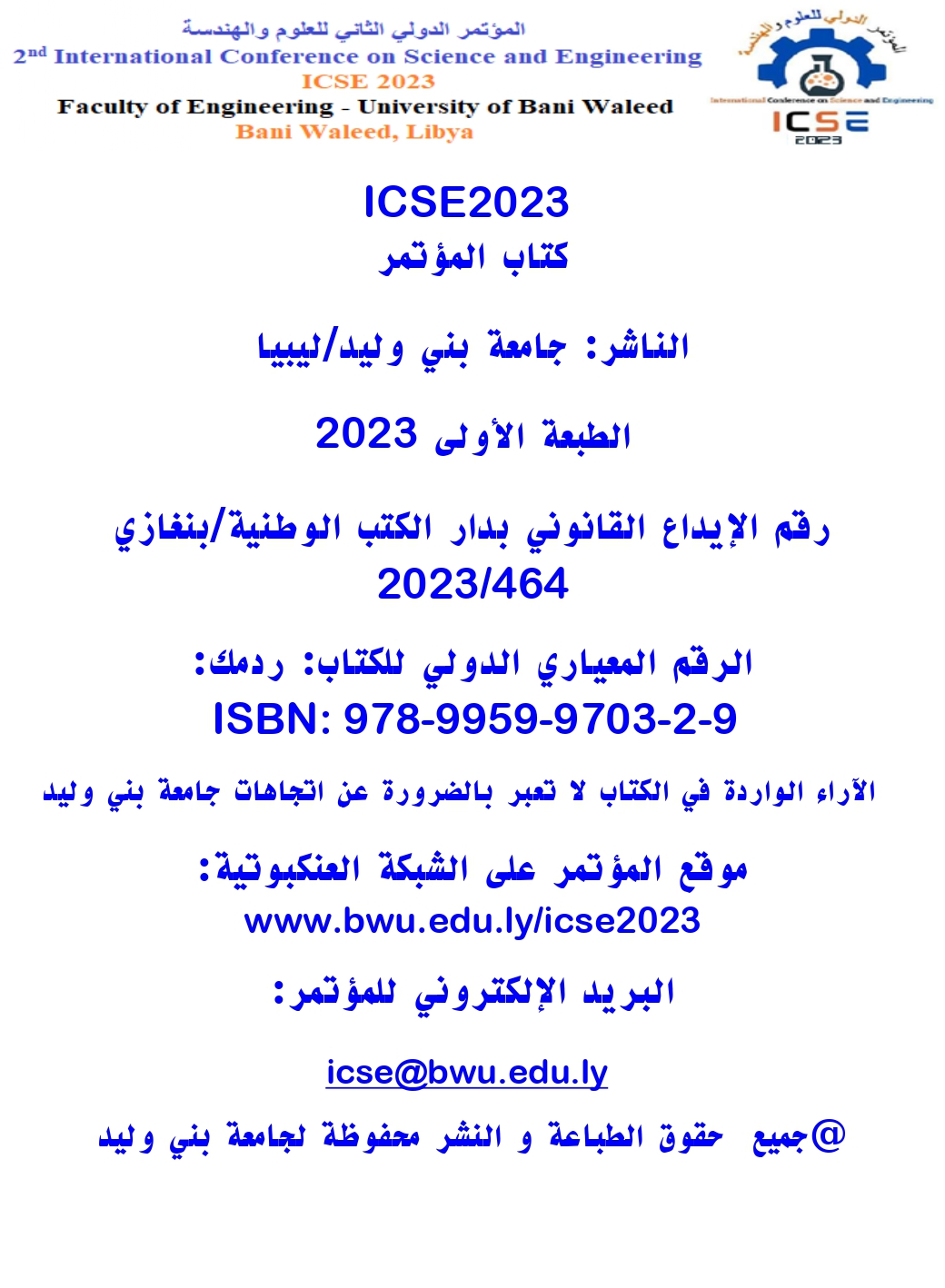The Effect of Replacing Fresh water with Salt water and Sea water in Concrete
DOI:
https://doi.org/10.58916/jhas.v8i3.161Keywords:
treatment, sea water, fresh water, underground, resistance testAbstract
Abstract: this study aim to verify the possibility of using salt water and sea water instead of fresh water for concrete in mixing and treatment. Comparing its results with the pressure resistance test of a previous study, where this study relied on two previous studies, the first one, which I was involved in, depended on determining the place underground water wells and the highest salinity water. But in second study, which I have conducted, the water of the highest salinity wells was used in the first study in addition to the use of fresh water and sea water. Concrete cubes for all this water were prepared and immersed in fresh water. This study is the same as the second one mentioned above, however, the difference between them is the use of sea water in immersion of concrete cubes.
The results showed that the used underground water had a resistance in 7 days between (22.66- 26.66)Mpa, while the result in 28 days were between (28.06- 34.13)Mpa. For fresh water submerged in sea water in 7 days were 25.06 Mpa, and in 28 days were 31.16 Mpa, while sea water in 7 days were 22.1 Mpa and in 28 days 28.93 Mpa.
Downloads
References
عمران علي احمد امشهر، سالم فرج مفتاح عطاف(2021). "تقييم وتصنيف نوعية مياه الآبار بمنطقة وادي زمزم ومدي صلاحيتها لإغراض الشرب والري". مجلة جامعة سبها للعلوم البحتة والتطبيقية. مجلد 20 العدد (4) 2021 . صفحة 143- 148.
مصباح الصادق عبدالعزيز، ناصر مولود عبدالسلام. (2020). "تقييم الوضع المائي في المنطقة الممتدة من ساحل البحر بمدينة صبراته إلى منطقة عفار". Alexandria Journal of Agricultural Sciences, 65(1), page 15.
حنان صالح فرج، نعيمة خليفة الغرياني، سالم محمد الرشراش. (2019). "دراسة هيدروجيوكيميائية للمياه الجوفية لمنطقة غدامس، درج، سيناون شمال غرب ليبيا". المجلة الليبية للعلوم الزراعية، مجلد 24 العدد (2) السنة 2019، ص 1.
م خالد عبدالسلام الفويرس، أ مفتاح فرج العماري .(2012). " الوضع المائي Libyan Agriculture في ليبيا مشكلة العجز والحلول المقترحة". Research Center Journal international . 3(S). 2012. Pp 1303.
المادة رقم (9) لسنة 2003،بالقانون الليبي بشان رفع القيود المفروضة علي حفر ابار المياه المنصوص عليها القانون رقم (3) لسنة 1982.
جمعة علي المليان، موسي خليل سعيد. (2019). " تقييم تداخل مياه البحر لساحل منطقة زليتن- ليبيا ". مجلة العلوم الإنسانية والتطبيقية جامعة الأسمرية. العدد 23 يونيو 2019. صفحة 338-339.
إسماعيل حمودة، محمد خوجة، عبدالرحمن بن زيد.(2021). " التغير في الأملاح الذائبة والكلورايد للمياه الجوفية في عدة مناطق بمدينة زليتن". الجامعة الأسمرية CEST-2021 الإسلامية- كلية الهندسة – زليتن (14-16 ديسمبر صفحة .241 المؤتمر الرابع للعلوم الهندسية والتقنية.
Govalkar, M. A., & Lal, M. D.(2020)., A Review on Effect of Saline Water And Fresh Water on Concrete., Wutan Huatan Jisuan Jishu. Volume XVI . JUNE/2020., Pp 439. ISSN:1001-1749
Irmawaty, R., & Tjaronge, M. W. (2014)., Effect of seawater as mixing water on the mechanical properties of mortar and concrete., In ConCERN (Conference for Civil Engineering Research Networks) (Vol. 2014, pp. 61).
Abdulrahman Bin Zayd. (2022)., Effect of Water Salinity on Concrete Strength., BANI WALEED UNIVERSITY JOURNAL OF SCIENCES & HUMANITIES. Twenty-six issue. Volume 2-December 2022.
American Society for Testing and Materials ASTM C 136: Standard test method for sieve analysis of fine and coarse aggregates.
American Society for Testing and Materials ASTM C 127: Standard Test Method for specific gravity and the absorption of coarse aggregate.
American Society for Testing and Materials ASTM C 131: Standard Test Method for Resistance to Degradation of Small-Size Coarse Aggregate by Abrasion and Impact in the Los Angeles Machine.
American Society for Testing and Materials ASTM C 128: Standard Test Method for Relative Density (Specific Gravity) and Absorption of Fine Aggregate.
Akinkurolere, O. O, Jiang, C and Shobola O. M., (2007), The Influence of Salt water on the compressive strength of concrete., Journal of Engineering and Applied Sciences., 2(2) Pp 414-415.
Falah M. Wegian., (2010), Effects of sea water for mixing and curing on structural concrete studies., The IES Journal Part A: Civil & structural Engineering., Vol. 3, No. 4 Pp237-242. DOI: 10.1080/19373260.2010.521048.
M. I. Reton Susilorini. Kristina Retno Dewi W, Tri Wibowo., (2005), The Performance of realy-age concrete with sea water curing., Journal of Coastal Department., Vol. 8, No. 2, Pp 85-95.
Mbadike, E. M., & Elinwa, A. U. (2011)., Effect of salt water in the production of concrete., Nigerian Journal of Technology., 30(2), Pp 105-110.
Islam, M. M., Islam, M. S., Al-Amin, M., & Islam, M. M. (2012)., Suitability of sea water on curing and compressive strength of structural concrete., Journal of Civil Engineering (IEB)., 40(1), 37-45















